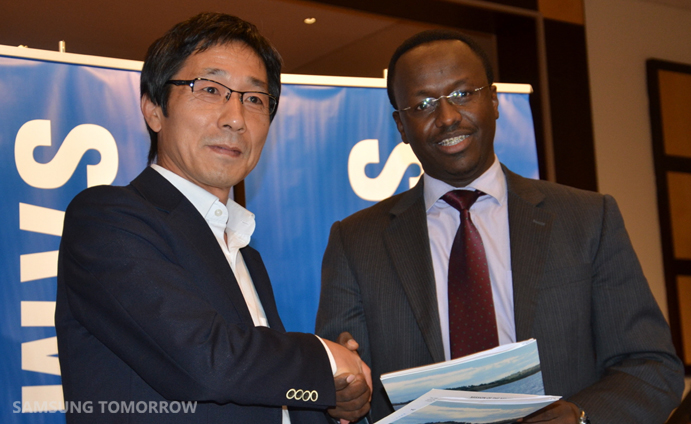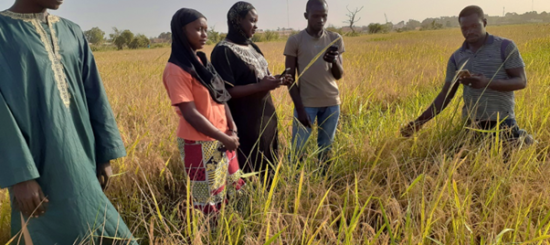Determined to make digital transformation central to its development strategy, Rwanda has multiplied its partnerships with international tech companies (Andela, Inmarsat, Alibaba...) over the past few years. The latest examples are the announcement, in the same week of November, of two new agreements with the American giant Google and the Korean Samsung, the world's leading smartphone manufacturer, respectively.
Unveiled by the Rwandan Ministry of ICT, at the confirmation of the upcoming launch of the Hanga Pitchfest, a competition that aims to "promote the use of technology and innovation, by presenting tech entrepreneurs and creative talents from across the country", according to its promoters, the two partnerships should help give a bit more strength to the new technology sector in the land of a Thousand hills.
"The growth of the digital economy will continue to drive Rwanda's economic transformation"
The agreement signed with Samsung will include support for the Rwanda Coding Academy, a school for computer developers located in the Nyabihu district, in western Rwanda. The Korean company will provide the Academy with a fully equipped 30-seat "innovation" laboratory. Commenting on the signing of the agreement, Paula INGABIRE, the Rwandan Minister of ICT, said she was convinced that it "will promote digital inclusion and that the growth of the digital economy will continue to drive Rwanda's economic transformation, in line with the country's vision to become a knowledge-based economy.

As for the partnership with Google, it aims to strengthen the digital culture of Rwandan citizens by recruiting digitally savvy youths to provide training in this field. The American technology group is particularly interested in accelerating the growth of e-commerce in the country, by helping 3,000 small and medium-sized businesses to go online and by equipping 1,000 "iWorkers", self-employed people who are digitally connected and equipped with a smartphone. In addition, the Californian company has announced its intention to bring Rwanda to the world through its Google Street View application. The goal is to enhance the digital maps of key urban centers and provide access to heritage through digital storytelling in collaboration with the National Museums of Rwanda.
"Let's work hard to spread these blueprints, so that they have the impact we wish to see on Africa's digital transformation"
The initiative has already delighted many SME managers, such as Eustache UWAYO, owner of a hardware store in Kigali, for whom the visibility gained on Google Maps should benefit his business, insofar as "almost everyone in Kigali has access to the internet and a smartphone.” Indeed, for the 33-year-old business owner, who in August this year managed to get a grant of 9 million Rwandan francs (about $9,000) from the Economic Recovery Fund - a state structure created in 2020 to support businesses hit hard by the pandemic - any mechanism that gets him closer to his customers is good. Small business owners have not been the only ones to applaud these latest technology partnerships.

On November 11, Rwanda’s President Paul Kagame himself, at the 10th board meeting of Smart Africa, welcomed Google and digital solutions specialist Westlink - a member of the ADS Group - as the latest members to join this African alliance aimed at improving access to information technology. "Let's work hard to spread these blueprints, together with those previously launched, so that they have the impact we wish to see on Africa's digital transformation," urged the Rwandan head of state, addressing representatives of 30 African countries and partners at the virtual event. The political leader certainly also had in mind the efforts still to be made "at home", as part of Rwanda's National Strategy for Transformation (NST1), which includes the ambition to "ensure digital literacy for all youths aged 16 to 30 by 2024". On this point, Rwanda will also be able to count on a whole series of projects led by local and foreign NGOs, such as the Connect Rwanda program, an American-Rwandan partnership that has so far equipped more than 7,000 households with smartphones.





